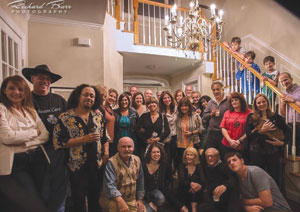 When you commit to marriage, you intend to take on the most meaningful project of your life. All projects take work but why are some couples happy and others miserable in the process? While chemistry and romance play a part some couples work together more successfully than others. Being open to the following ways of relating is likely why.
When you commit to marriage, you intend to take on the most meaningful project of your life. All projects take work but why are some couples happy and others miserable in the process? While chemistry and romance play a part some couples work together more successfully than others. Being open to the following ways of relating is likely why.
Paying Attention
When you pay attention to each other, you become aware of each other’s moods and preferences. Paying attention to each other’s thoughts and feelings enables you both to intuit and address each of your needs. When you feel seen and heard by your partner, you feel valued and special.
Considering Differences
Opposites tend to attract. Your personalities may be complementary, but they also may be polarizing. When they are polarizing, you feel angry and frustrated. Rather than try to prove your way is better, think about why you approach the same problem so differently. Just the effort of considering rather than judging your partner’s point of view will likely feel very meaningful to him or her. Sometimes a husband or wife asks me dumbfounded, “Why can’t my spouse do it the way I would?” Asking a question instead of reaming your spouse for doing it “wrong” engenders a discussion.
Feedback is helpful. Criticism is alienating. When your spouse makes an accusation or complaint it is quite helpful to consider whether it has some validity. You can then decide if you are wed to your way or wed to your spouse.
 Working as a Team
Working as a Team
Teamwork is about good communication, patience, and encouragement while combining your skills to work together toward a mutual goal. It involves listening, considering what has been expressed, and responding with ideas that take into account both of your perspectives. Sometimes arguing is necessary to find solutions, but arguing to hurt or prove the other person wrong is hurtful and divisive.
The experience of love and hate in the process of finding a mutually satisfying solution actually keeps relationships vital. If you stay on the same side believing that you both have good intentions you will be kinder to each other. A happy marriage requires negotiation and at least some compromise. Finding a mutually gratifying solution or taking turns giving in allows you to recognize and appreciate the sacrifices you make for one another.
If you feel alienated, it’s likely one or both of you is engaging in unhealthy ways of coping. Inflexibility, giving up, blaming others, denying problems or abusing alcohol and drugs are some examples of unhealthy coping. One trap is turning to friends or family to gain support for negative feelings toward your spouse. More often than not this increases defensiveness, arguing and discord.
Giving and Gratitude
The spirit of giving and gratitude also works to keep couples together. Expressing appreciation for the ways in which you prioritize meeting each other’s needs engenders positive feeling. Expressing gratitude for the ways you take care of your household together can make chores feel less burdensome. Feeling taken for granted, results in withholding, anger and hopelessness. A relationship based on giving and gratitude and shared responsibility engenders cycles of reciprocity rather than resentment.
Being Flexible
If you both stay flexible, conflicts resolve more easily. Try to think about why you may be holding hard and fast to a belief. If you both dig in your heels and fight about whose way is right, it will be harder to resolve the problem. If either spouse asserts: “I am not going to change. You need to accept me for who I am,” he or she is not working toward the greater goal of mutual happiness. Unhappy couples are resigned to the idea that “people do not change” so they act and react to each with anger, passive aggression, stubbornness, and resignation.
Offering Friendship
Ask yourself what do you like about friendship? Companionship, laughter, support, fun, and good natured competition are typical answers. Good natured competition means the goal is to admire the winner and take losing in stride. Couples that spend time together sharing activities like playing a sport or even watching a TV series feel identified and connected. Spouses who share the benefits of friendship are happier.
Couples who succeed are the ones who face life challenges feeling like a good team. If you resolve your conflicts, generate solutions together, and reach your mutual goals, you will continue to feel satisfied and happy in your marriage. When you value each other, and enjoy each other, you know you are better together than apart.
Danika Altman, Ph.D., is a clinical psychologist in private practice with adolescents, adults, and couples. She also works as a management skills and interview preparation coach. She has offices in Pleasantville, NY, and in Manhattan.

